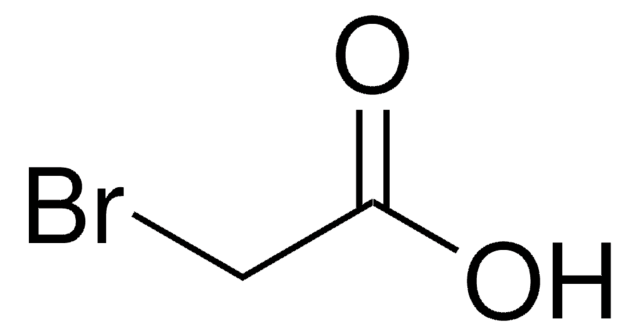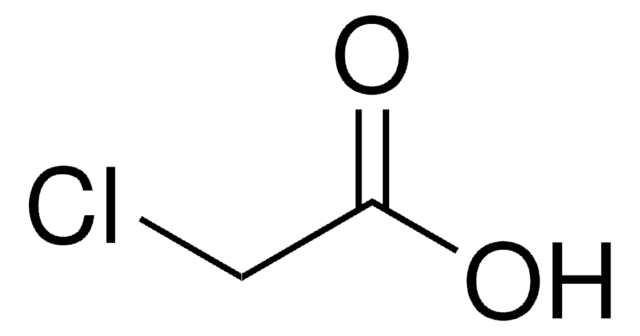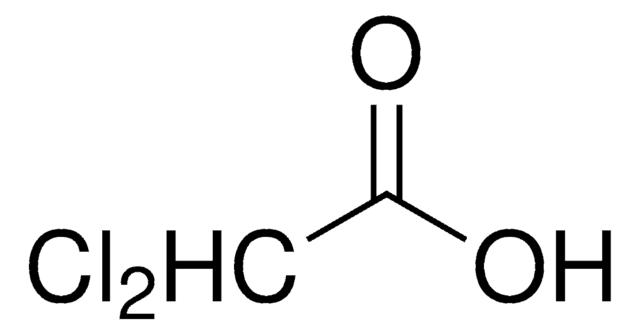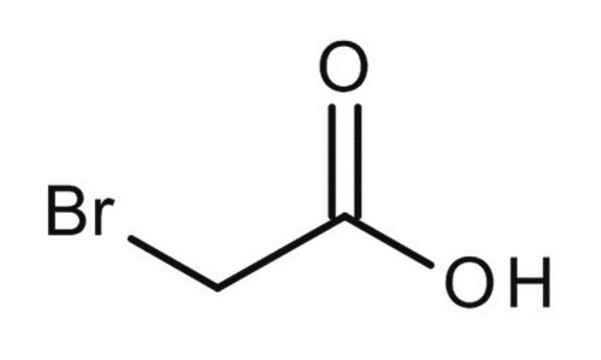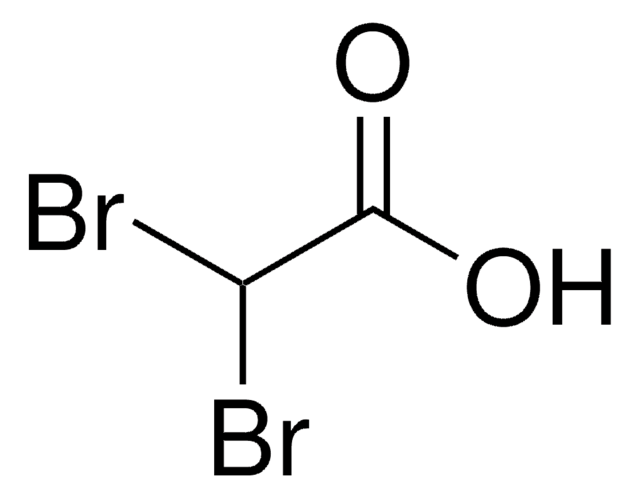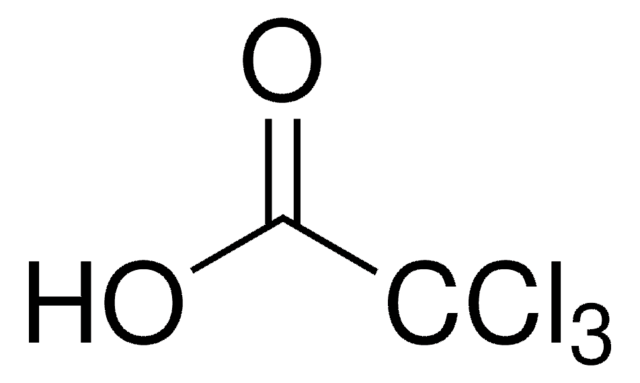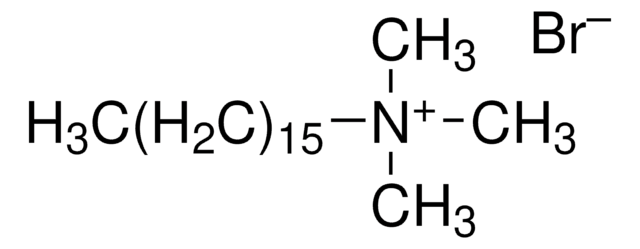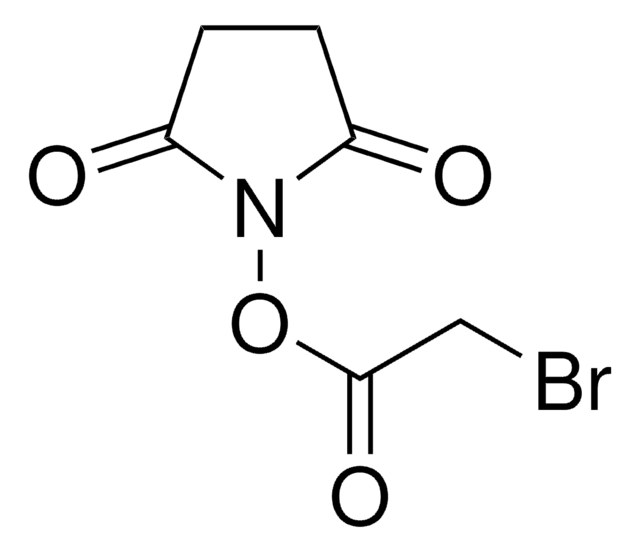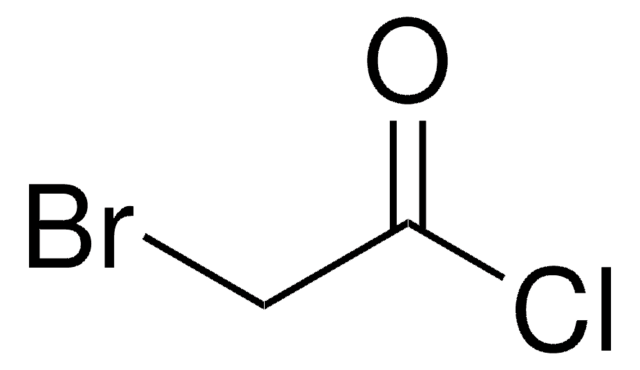17000
Bromoacetic acid
ReagentPlus®, ≥99.0%
Synonym(s):
α-Bromoacetic acid, Monobromoacetic acid
About This Item
Recommended Products
Quality Level
product line
ReagentPlus®
assay
≥99.0% (GC)
≥99.0%
form
solid
impurities
≤1% dibromoacetic acid (1H-NMR)
bp
208 °C (lit.)
mp
46-49 °C
47-49 °C (lit.)
solubility
chloroform: 10%, clear, colorless
SMILES string
OC(=O)CBr
InChI
1S/C2H3BrO2/c3-1-2(4)5/h1H2,(H,4,5)
InChI key
KDPAWGWELVVRCH-UHFFFAOYSA-N
Looking for similar products? Visit Product Comparison Guide
Related Categories
Application
It can also be used:
- To synthesize (Z)-2-(cyclooct-4-en-1-yloxy)acetic acid.
- To synthesize α-bromo-phenylacetamide.
- To convert aromatic thiosemicarbazones to thiazolylhydrazones.
Legal Information
related product
signalword
Danger
Hazard Classifications
Acute Tox. 2 Oral - Acute Tox. 3 Dermal - Acute Tox. 3 Inhalation - Aquatic Acute 1 - Eye Dam. 1 - Skin Corr. 1A - Skin Sens. 1
wgk_germany
WGK 3
flash_point_f
closed cup
flash_point_c
closed cup
ppe
Eyeshields, Faceshields, Gloves, type P3 (EN 143) respirator cartridges
Choose from one of the most recent versions:
Certificates of Analysis (COA)
Sorry, we don't have COAs for this product available online at this time.
If you need assistance, please contact Customer Support.
Already Own This Product?
Find documentation for the products that you have recently purchased in the Document Library.
Customers Also Viewed
Our team of scientists has experience in all areas of research including Life Science, Material Science, Chemical Synthesis, Chromatography, Analytical and many others.
Contact Technical Service